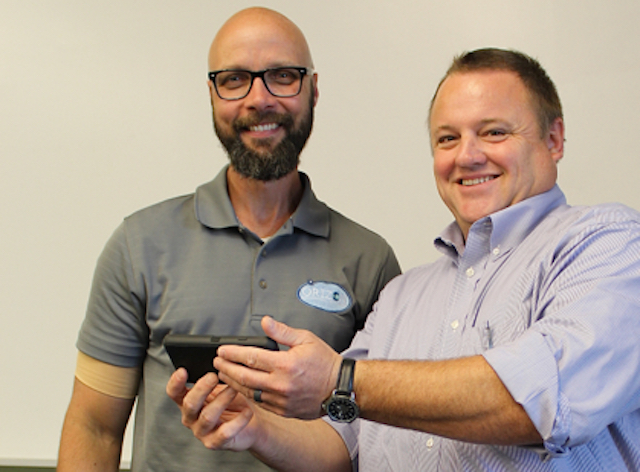During the hot summer months, companies will want to make sure their employees avoid heat-related illnesses, Tomas Motiejunas of Orizon IPE told members of the Coweta County Safety Council at their May 17 meeting.
Motiejunas serves as director of environment health and safety at Orizon IPE, an Atlanta company that addresses the ongoing environmental health and safety needs of business and industry.
Heat-related illnesses occur predominantly in those 25 to 55 whose work includes physical activity, particularly in such fields as agriculture, construction and materials handling. Heat-related illnesses happen, Motiejunas said, when the body isn’t able to cool itself and overheats, a condition that can cause injury, disability or even death.
Through a slide presentation and film clips, Motiejunas discussed the progression of heat-related illnesses, beginning with heat rash, which can be identified by blister-like eruptions on the skin. Heat cramps, meanwhile, can cause an employee to assume an abnormal body posture, and a person with heat cramps should be moved to a cool place and encouraged to drink water and possibly a diluted sports beverage. Next he discussed fainting, which occurs when the heat causes an employee to develop sudden dizziness or lightheadedness, sometimes resulting in unconsciousness.
Motiejunas focused on heat exhaustion and heat stroke, noting that heat exhaustion may be indicated by such symptoms as headaches, dizziness, mood changes, nausea, a pale, clammy appearance, and excessive sweating. With heat stroke, sweating stops, and the person appears red-faced, has a rapid, strong pulse, and may appear confused or lose consciousness, at which point 9-1-1 should be called. The telling difference between heat exhaustion and heat stroke is the mental awareness of the person, Motiejunas said, so if someone suspected of heat exhaustion doesn’t feel better within just a few minutes, 9-1-1 should be called since that individual’s condition could advance to heat stroke.
He emphasized the importance of drinking fluids to avoid such situations.
“It all boils down to that, making sure that we’re hydrated,” he said. Motiejunas noted that while employees are responsible for monitoring their own water needs, employers are responsible for encouraging water consumption.
To prevent dehydration that can lead to heat-related illnesses, drink plenty of water, start work well hydrated, and consider drinking diluted sports beverages as well, Motiejunas said. He encouraged those at risk of heat-related illnesses to avoid colas and other sugary drinks, excessive coffee and tea, and alcohol. Also, do not wait until it’s too late before drinking water, he said.
He showed the group the large YETI tumbler he constantly sips water from. “The best invention is these YETIs,” he said.
Motiejunas told the group to be sure that employees drink plenty of water and to know the signs and symptoms of heat exhaustion and heat stroke. “Work smart,” he said, and employees should also be encouraged to acclimate themselves to any climate conditions they’re not used to. Finally, he said, employees should wear appropriate clothing, take regular breaks, and keep an eye on their coworkers.
The Coweta County Safety Council, which was formed under the auspices of the Newnan-Coweta Chamber, meets monthly at The Summit in Newnan. For more information, contact CCSC President Ken Pinkerton at [email protected] or call the Newnan-Coweta Chamber at 770-253-2270.
In the photo above, Motiejunas visits with Pinkerton after the meeting.













Leave a Comment
You must be logged in to post a comment.